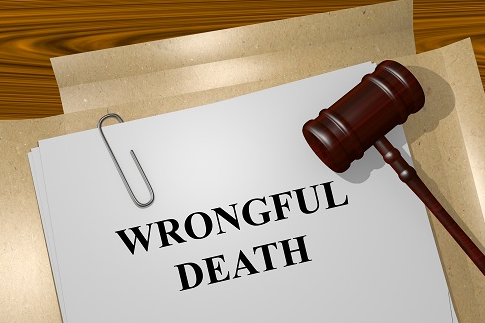When a person’s death is caused by another person, the survivors of the deceased can take legal action against that person in what is known as a wrongful death lawsuit. The survivors of a deceased person will take this action to get compensated for their loss. Some of the damages that survivors seek in such cases include funeral expenses, lost companionship, and lost wages. Read on for a breakdown of what an unjustified death claim is, who is entitled to sue, and the damages that can be collected from these claims.
What is An Unreasonable Death Claim?
An unjustified death claim arises when an individual dies because of someone else’s legal fault. Unreasonable death claims include all kinds of fatal accidents such as vehicle accidents, product liability, and medical malpractice cases. Companies, government agencies, and persons can be sued for their negligent or intentional actions that cause the death of a person.
Who Can File an Unreasonable death Claim?
An unjustified death lawsuit needs to be filed by a person who represents the interest of the survivors of the deceased. These representatives are known as “real parties in interest”. This representative is typically the executor of a deceased person’s estate. They vary depending on the state in question. Generally, some of the people who qualify as real parties in interest include:
- Immediate family members: The deceased’s immediate family which comprises of children and spouse; the parents of unmarried children can recover damages through an unjustified death claim.
- Financial dependents, putative spouses, and life partners: Many states recognize financial dependants, putative spouses, and life spouses of the decedent as entitled to recover from an unjustified death action.
- Distant family members: In some states, distant family members like grandparents, brothers, and sisters can file unjustified death claims.
- Everyone who suffers financially: In some states, any person who is affected financially by the death of another person can file an unjustified death claim citing lost support or care, even though they have no relations with the decedent.
- Parents of a dead fetus: Some states recognize a dead fetus as sufficient to warrant an unreasonable death suit. In other states, parents cannot recover emotional and financial loss unless they can prove that a child was conceived alive but later died.
Damages in An Unreasonable Death Claim
Financial or pecuniary injury is the primary measure of damages in cases of unjustified death. Pecuniary injuries have been interpreted by the courts to include loss of support, medical expenses, funeral expenses, and the loss of the prospect of inheritance. In most states, the damages granted for an unreasonable death are compensation for pecuniary injuries resulting from the decedent’s demise.
When deciding on pecuniary loss, the court will take into account the deceased’s age, character, and condition. Other factors that may be considered include the decedent’s life expectancy, health, intelligence, earning capacity, and the circumstances of his/her survivors. The main consideration when awarding damages is the deceased’s circumstances before he/she passed on. For example, in a case in which an adult with dependants passes away, the main components of recovery include; loss of income, and loss of parental guidance. The court will determine the decedent’s last known earnings when he/she was alive and his/her potential future wages.

